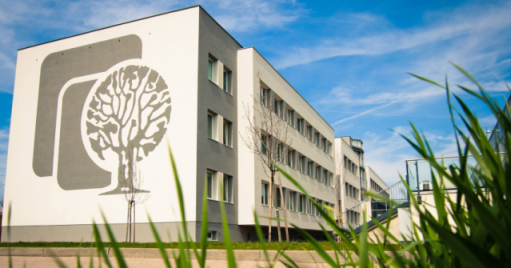
The Department of Wood Processing and Biomaterials was established on August 1, 2018, through the merger of the Department of Wood Processing and the Department of Wooden Products and Constructions. The creation of the new department was a logical culmination of the dynamic development of woodworking disciplines at the Faculty of Forestry and Wood Sciences of the Czech University of Life Sciences in Prague. The current establishment of the new department responds to the demands of both students and, primarily, the needs of the industry. It demonstrates the associative process of woodworking subjects and fields of study and their strengthening within the faculty.
Educational activities
The educational activities at the department include teaching specialized subjects for bachelor’s, master’s, and doctoral study programs.
The department’s expertise covers the entire area of wood processing. It focuses on primary wood processing processes, highlighting their importance and connection to secondary wood processing processes. The entire field is strengthened by education focused on the production of wood-based structures and the creation of interiors or product design.
It is a combination of traditional technical and technological woodworking disciplines, suitably complemented by disciplines responding to the latest trends (e.g., CNC woodworking technology), process engineering, and impacts on the economy and company operations.
Scientific and research activities
The scientific and research activities cover an ever-widening spectrum of disciplines focused on the properties of materials, their application in products and structures, and analyses of degradation influences, chemical processes, and a range of other activities related to the concept of wood and other bio-materials in human life.
Currently, the department focuses primarily on:
- Monitoring the influence of properties in the machining process from the perspective of technical and technological factors in relation to the energy intensity of the process and the quality of the machined surface,
- Optimization of machining process parameters with the prediction of adequate direction of wood into woodworking technologies and products,
- Determining the physical and mechanical properties of wood from atypical sites (North Bohemian brown coal dumps),
- Determining the physical and mechanical properties of wood from introduced species,
- Properties and machining of thermally modified wood (Thermowood),
- Creation of new types of composite materials based on wood and non-wood materials with specific properties for the intended use,
- Development of mathematical models aimed at creating materials with specific properties for the intended use.
Other acitivities
The department participates in significant woodworking fairs (WOOD-TEC, Pragoligna, FOR WOOD, Ligna Bohemia), where it often contributes to the professional program of the exhibition. It also regularly attends international conferences (Woodworking Techniques, WoodEMA, Chip and chipless woodworking processes).
The department has extensive and high-quality facilities for its educational and research activities in the newly built Woodworking Pavilion. This includes primarily the wood machining and woodworking technology laboratory (testing mechanical and physical properties of wood and wood-based materials), the wood science laboratory, the image analysis laboratory, and an extensive collection of domestic and tropical woods – a xylotheque. Within the laboratories, there are monitoring stations focused on observing the energy intensity of wood machining processes, the quality of machining, and the analysis of the working environment in terms of noise, dust, or vibrations.
Contact
Department’s secretariat
Kaiserová Runa
kaiserova@fld.czu.cz
+420 224 383 789





